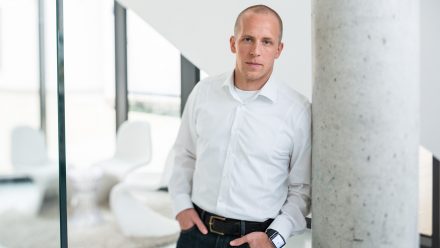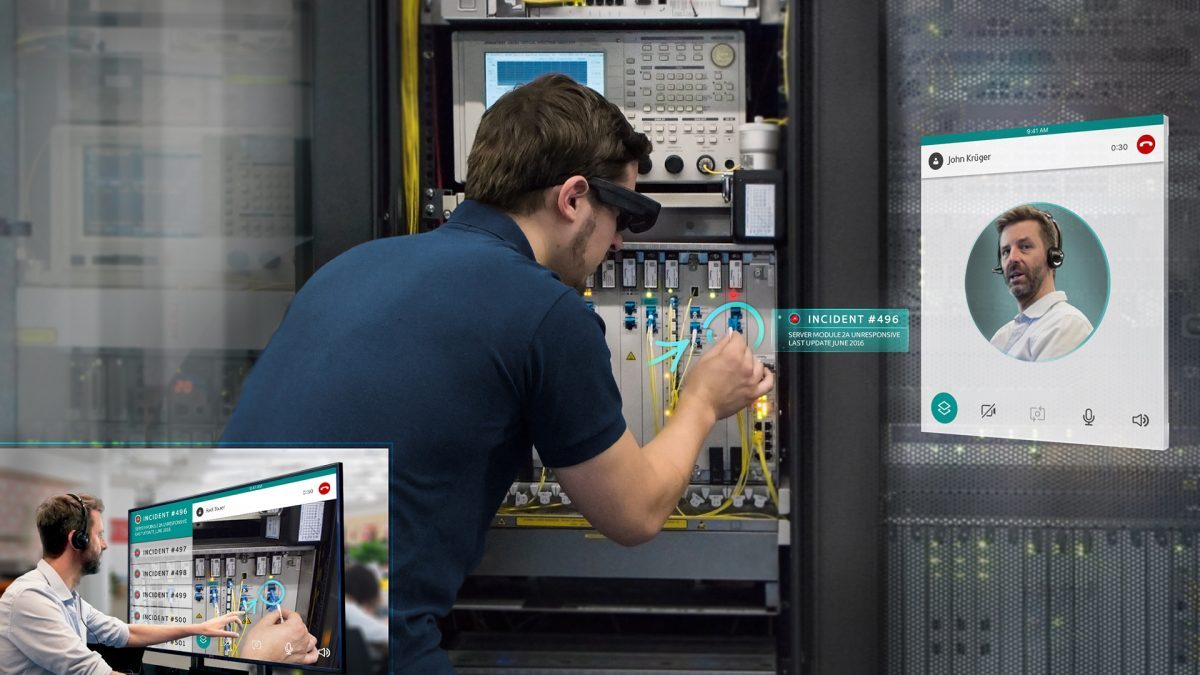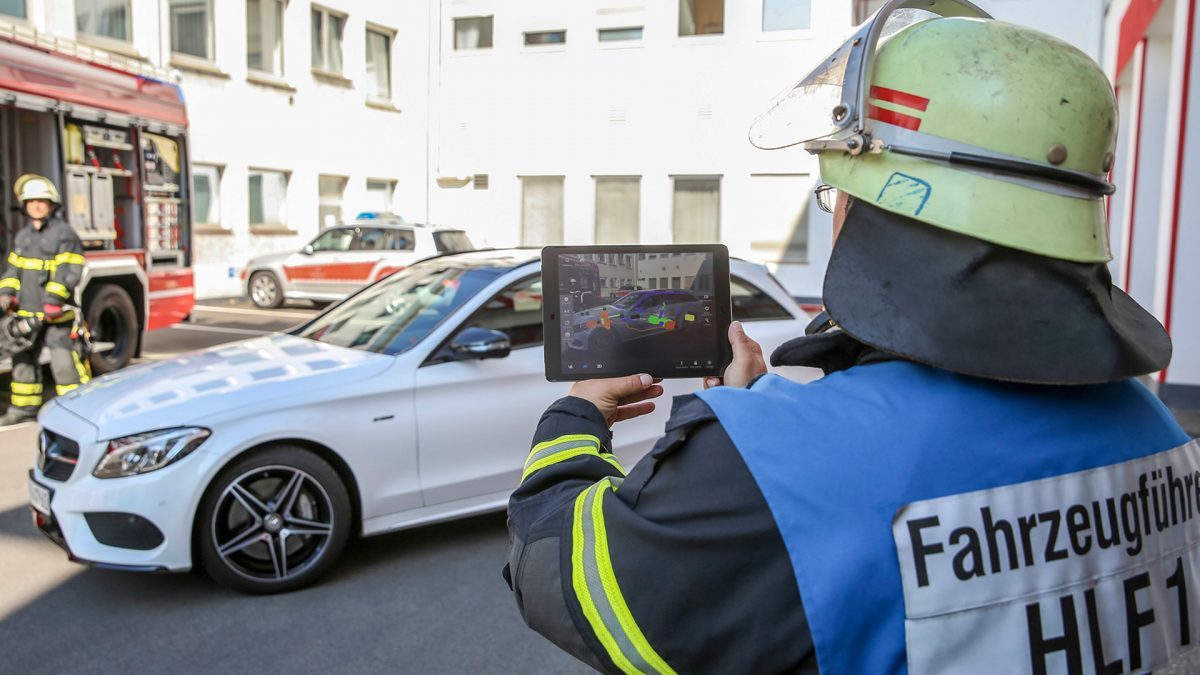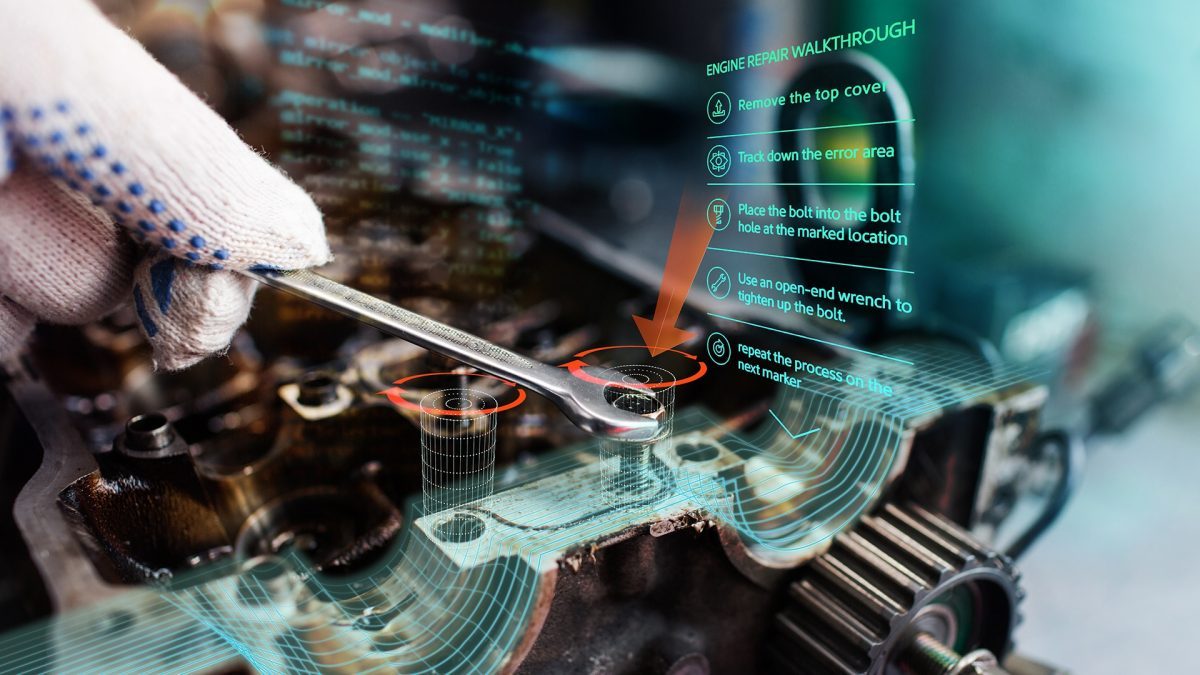The Munich startup Reflekt lets companies develop their own augmented and mixed reality applications without any programming skills whatsoever. The company has been a success since 2012, has approximately sixty employees worldwide and is looking to fill additional positions. Customers from a wide range of industries use Reflekt. The industry is booming, with a projected growth rate of nearly 60% by 2026. We spoke with Wolfgang Stelzle, CEO and founder of the young company.
Wolfgang, what solutions do you offer?
Our ecosystem can be divided into two areas. A platform for creating augmented reality (AR) content and a remote expert tool, which connects employees with an expert for direct AR support with just one click.

In production, assembly and also in the maintenance sector, the use of AR with the Reflekt ecosystem means that work is completed faster and with fewer errors. This is possible thanks to visual step-by-step instructions, instructions that are superimposed directly on the employee’s field of vision, or nominal/actual comparisons projected onto different components of an object.
In the training field, it’s about how you can convey educational content in a visual and interactive way. Our goal is to impart knowledge that sticks and avoid employees forgetting what they learned right after the training.
All our eggs in one basket
What was the most important milestone since your founding? Who or what drove you to reach it?
It’s difficult to name just one important milestone since our founding because there are so many important milestones in different stages. The investment rounds with Bosch, BASF and Prosegur should certainly be mentioned (note from editor: here is further information about the 2015 financing rounds and the 5.7 million series A round in 2018).
Something that most significantly shaped us as founders was a management buyout in 2015. We put all our eggs in one basket back then to buy back a large portion of the company shares that we had given up a few years beforehand to avoid business failure.
There must have been some stumbling blocks on the road to success. What mistakes have taught you the most?
We’ve made a lot of mistakes in the past, and we probably couldn’t have avoided all of them either. After all, you always take a risk when making decisions.
If I were to found a startup for the first time, I would try to get an experienced mentor by my side as quickly as possible. That’s something a founder can do without an existing network by using accelerator programs, conferences, meetups, etc.
What is your ultimate tip for founders?
I think every startup faces its own challenges. A lot of developments, however, follow patterns that you can learn. It’s important to surround yourself with people who are more experienced than you. And never stop learning!
What’s more important than anything else is to never give up and to always pick yourself back up after setbacks.
“A good idea with a brilliant team”
What do you think is the key factor for successful business development?
The team — a brilliant idea with a good team can never be as successful as a good idea with a brilliant team.
You founded the company in 2012. Do you still consider yourselves a startup?
Yes, I think so. Even though we founded the company in 2012, we were still active in the project business back then. We only started product development for scalable licensing business when Bosch got on board.
Moreover, our corporate structure and culture still play a much more prominent role for us. We have short decision-making channels, and every colleague has the opportunity to tackle things themselves. That allows us to quickly implement ideas and initiatives and equips us for dealing with unforeseeable events.
In addition to Munich and Düsseldorf, you also have an office in San Francisco. How would you describe the startup atmosphere in Germany? What advantages do you see in your Bay Area office, and what advantages are there in Munich?
That’s an interesting question, especially since I also advocate the startup ecosystem in Germany as the Chairman of the Federal Working Group ‘Startups’ in the Economic Council Germany. Germany’s backbone is industry and SMEs. That’s something we’re envied for internationally and it holds a great deal of untapped potential for startups.
Munich, in particular, is a dream come true for B2B startups. That being said, the US, and especially the Bay Area, is years ahead of us in many aspects. That especially includes the sheer mass of capital and structures that promote innovation. It’s still nearly impossible for employees to participate in companies in Germany. It’s only virtual in the early startup stages, and that is detrimental here in Germany.
Where do you see the current AR, VR and mixed reality trends heading?
An important key word is the ecosystem. Although we now see many AR offers on the market involving both hardware and software with new offers being added every year, the different solutions still aren’t interlinked enough. Companies are increasingly asking for different programs and software solutions to be combined in one app that can be integrated into a company’s existing infrastructures.
Agility, speed and a passion for innovation
How will your company become the next unicorn?
We’re leading an exciting market, have an award-winning product and a strong team. We’re going to maintain our agility, speed and passion for innovation and establish an ecosystem that is very difficult to break into. That also includes partnerships with established companies like Bosch or Siemens, who have valuable lessons to teach us and are giving us global leverage.
Thank you for the interesting insights!



